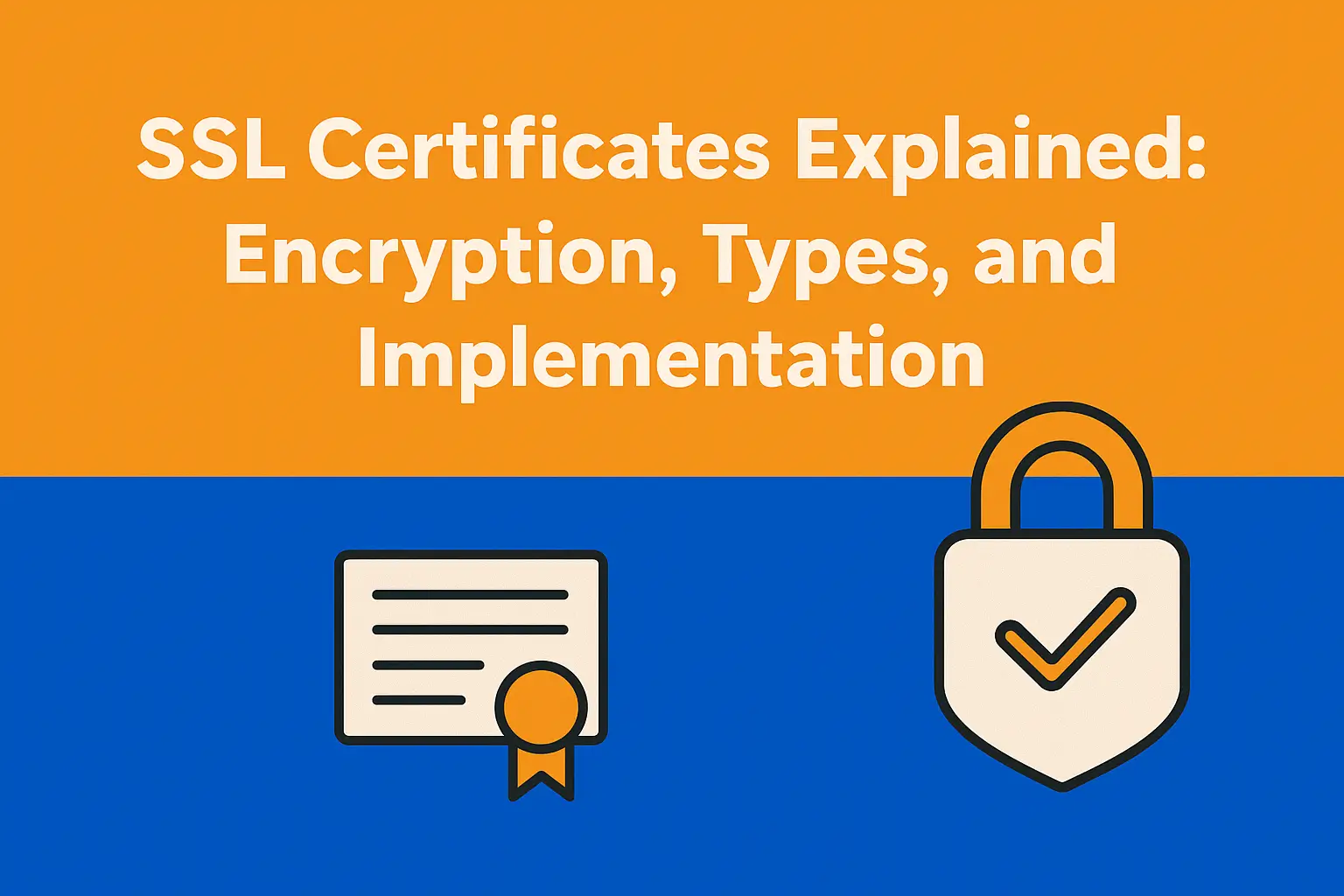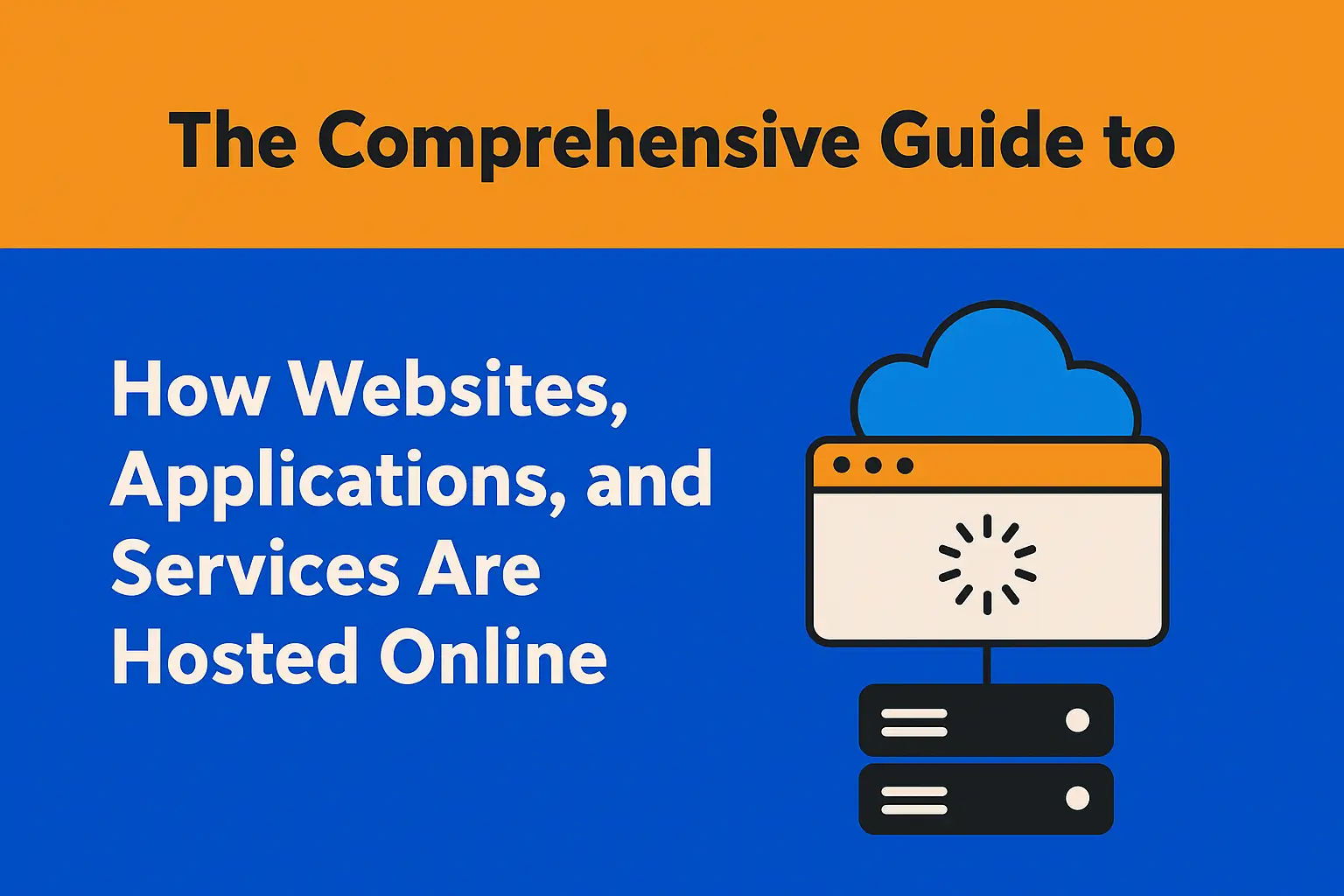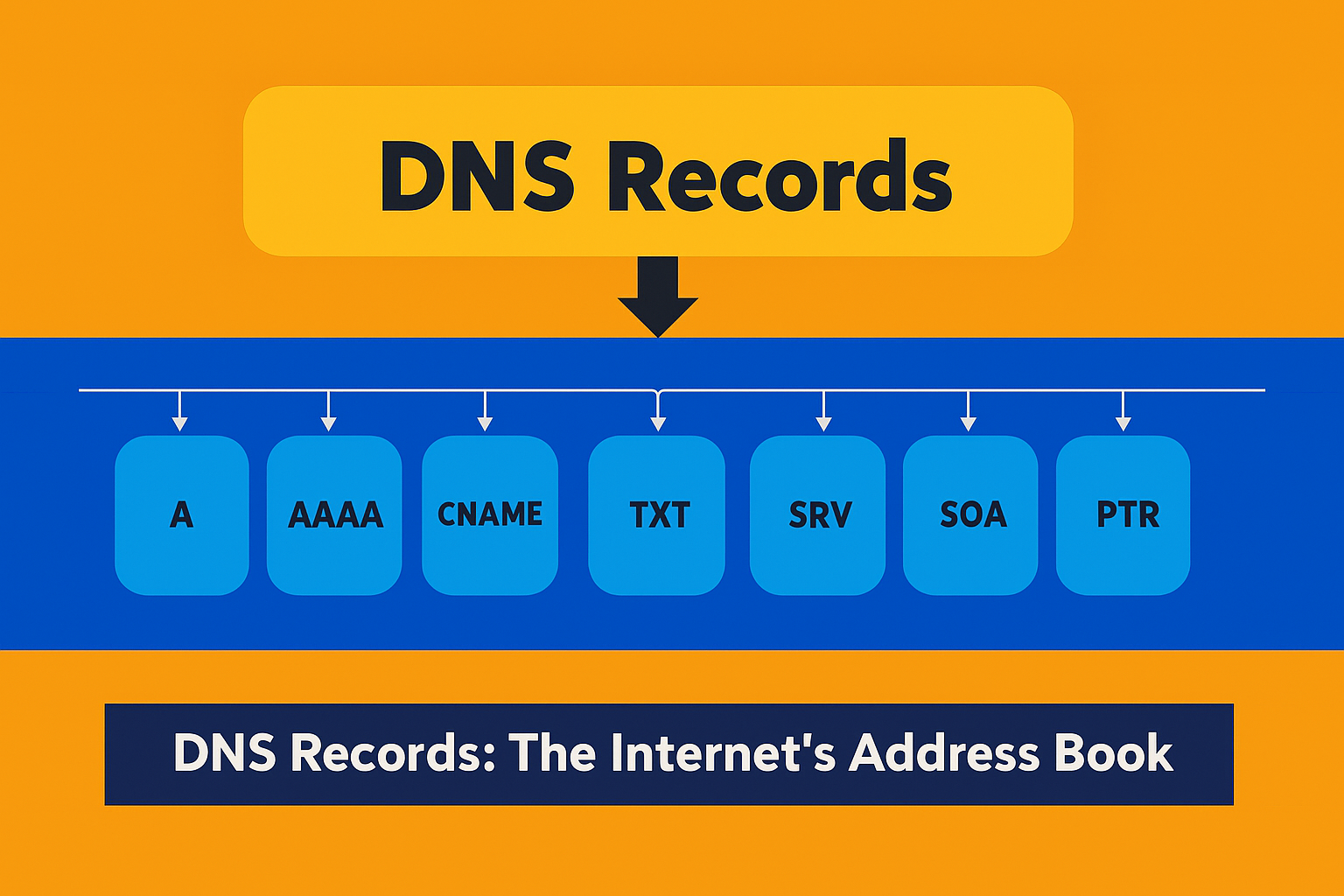
A domain name is far more than just a random string of words separated by dots; it is the cornerstone of your online identity. In the digital age, a domain name acts as your website’s address, leading users straight to your online presence, whether it’s a blog, e-commerce site, or corporate webpage. Aside from serving as your web address, a well-chosen domain name significantly contributes to your brand’s recognition and credibility, affecting both user perception and search engine rankings.
Considering the saturated nature of the internet, selecting the perfect domain name can be a daunting task. Your choice of domain name can determine how easily potential customers can find you, how they perceive your brand, and how effectively your marketing campaigns will fare. Simply put, your domain name is an integral aspect of your branding strategy that can influence your business’s success. That makes it crucial to give it the thought and effort it deserves.
In this tutorial, we aim to walk you through every essential factor that goes into choosing the perfect domain name. From understanding the basic structure of domain names to considering aspects like keyword integration, length, and branding potential, we will explore each element in detail. By following this step-by-step guide, you will be equipped with the knowledge needed to make an informed decision, ensuring that your domain name will not only represent your business effectively but also facilitate its growth in the digital realm.
Whether you’re a small business owner setting up your first website or an established brand looking to rebrand your online presence, this tutorial is designed to meet your needs. Let’s delve into the intricacies of domain names and unlock the potential to make your mark in the vast landscape of the internet.
Understanding Your Brand and Audience
When choosing the perfect domain name, the critical first step is to understand your brand and audience thoroughly. The domain name serves as the digital representation of your brand. Hence, it should resonate with your brand’s identity and appeal to your target market. Begin by clearly defining your brand’s core values – what your brand stands for, its mission, and the unique attributes that distinguish it from the competition. This foundational insight will guide you in selecting a domain name that is not only memorable but also reflective of your brand’s ethos.
Equally important is understanding your target audience – who they are, what they value, and how they search for products or services similar to what you offer. Conducting thorough market research can provide valuable insights into your audience’s preferences and behaviors, allowing you to choose a domain name that aligns with their expectations and search habits. Consider demographics, interests, and language nuances pertinent to your target market, as these factors can significantly influence the effectiveness of your domain name.
To brainstorm domain names, start by compiling a list of keywords and phrases that encapsulate your brand’s essence. Make use of brainstorming techniques such as mind mapping, and seek inspiration from your brand’s message, vision, and personality. It is essential to ensure that the chosen domain name is easy to spell, pronounce, and remember. Additionally, it should convey the right message to your audience, providing an immediate sense of what your brand is about.
Furthermore, consider the emotional connection your domain name may inspire. A well-chosen domain name can evoke the desired feelings and associations, strengthening your brand’s presence and appeal. In summary, a domain name that harmonizes with your brand’s identity and resonates with your audience can significantly enhance brand recognition and loyalty, setting the stage for online success.
Importance of Keywords in Domain Names
Incorporating relevant keywords into your domain name is an integral aspect of establishing a successful online presence. Keywords in domain names play a pivotal role in bolstering search engine optimization (SEO), which enhances visibility and discoverability in search engine results. By embedding pertinent keywords, you explicitly signal to search engines the core topic of your website, subsequently aligning your content with potential users’ search queries.
For instance, if your business focuses on digital marketing, a domain name such as “DigitalMarketingExperts.com” immediately highlights the niche and expertise. This keyword-rich domain name not only assists in indexing by search engines but also attracts users actively searching for those specific services, directly contributing to increased organic traffic.
To effectively integrate keywords into your domain name, keyword research tools such as Google’s Keyword Planner, SEMrush, and Ahrefs can be invaluable. These tools help identify high-volume search terms relevant to your industry, providing insights into optimizing your domain name for maximum reach. Strategic placement of these keywords can differentiate your domain and elevate its ranking in search results.
However, it is crucial to balance relevance and simplicity. An overly complex domain name, while keyword-rich, can be cumbersome to remember and prone to typographical errors. Aim for brevity and clarity, ensuring the domain remains user-friendly while still leveraging the advantages of keyword integration. Opt for a name that succinctly encapsulates your brand and its offerings while resonating with your target audience.
In summary, embedding relevant keywords in your domain name is a formidable strategy to enhance SEO and user accessibility. Careful keyword selection and integration will substantially elevate your domain’s discoverability, making it an essential element in your digital strategy.“`
Keeping It Short, Simple, and Memorable
One of the foundational principles in selecting a domain name is ensuring that it is short, simple, and easy to remember. A concise domain name is not only more user-friendly but also helps in establishing a strong online presence. The length and complexity of a domain name can significantly influence how effectively users can recall and type it, impacting web traffic and accessibility.
A shorter domain name is advantageous for several reasons. Firstly, it minimizes the chances of user error when typing the URL. Moreover, brevity helps in creating an impression that is easily retained by visitors, promoting return visits and word-of-mouth referrals. Aim for a domain name that contains no more than 10-15 characters, excluding the domain extension.
Simplicity is equally crucial. Avoid complex spellings, numbers, and hyphens, as these elements can create confusion and increase the likelihood of mistyped URLs. Stick to common words or phrases that are easy to spell and pronounce. This simplicity not only aids in memorization but also improves your site’s credibility and trustworthiness. A straightforward domain name will be more intuitive, aiding users in naturally recalling your website.
Creating a memorable domain name involves blending originality with simplicity. Try to incorporate keywords relevant to your business or the content of your website in a creative manner. Striking a balance between meaningfulness and catchiness can help your domain stand out. For instance, ‘FitnessTracks.com’ is more engaging and easier to remember than ‘BestWorkoutPrograms4U.com’. The former is not only shorter but also avoids numerical and special characters, making it both catchy and simple.
Ultimately, the goal is to create a domain name that leaves a lasting impression while remaining accessible. A domain that is short, simple, and memorable equips your website with a strong identity and enhances user experience, laying a solid foundation for your online strategy.
Considering Domain Extensions
When embarking on the journey of selecting a domain for your website, the choice of domain extension is a pivotal factor. Domain extensions, technically referred to as Top-Level Domains (TLDs), are the suffixes at the end of web addresses, such as .com, .org, .net, and country-specific endings like .us, .uk, or .de. Each of these extensions serves a unique purpose and can impact your online presence in several ways.
The ubiquitous .com extension remains the most popular choice for businesses globally. It is generally perceived as the most credible and authoritative due to its longstanding association with commercial entities. For non-profit organizations, institutions, and projects centered around the community, .org is a suitable choice, conveying a sense of trust and integrity. On the other hand, .net, originally intended for network-related entities, is now frequently utilized by a variety of organizations when their preferred .com option is unavailable.
Choosing a country-specific extension, known as a country code top-level domain (ccTLD), such as .uk, .ca, or .au, can enhance your site’s appeal within a specific region. This strategy is particularly advantageous for businesses with a localized market focus, presenting a more personalized and locally relevant image to the audience. Additionally, search engines may provide ranking advantages for websites using ccTLDs in respective regional searches.
Besides traditional options, a plethora of new gTLDs like .tech, .store, .blog, and .app offer opportunities to create a memorable and branded web presence. These niche extensions can immediately communicate the nature of your business and appeal to a targeted audience, potentially improving click-through rates and engagement.
Moreover, the choice of a domain extension can subtly influence Search Engine Optimization (SEO). Authorities have indicated that a well-chosen TLD can enhance a site’s relevance in certain contexts, though .com and other established extensions still hold precedence in universal appeal. Hence, aligning your domain extension with your business type and target geographical market not only supports your branding strategy but can also indirectly contribute to improved visibility and trustworthiness online.
Checking Availability and Trademarks
When selecting the perfect domain, one of the critical steps is ensuring its availability. This involves more than a mere search for unregistered names; it’s about making strategic choices that align with your brand’s identity and goals. To begin, use tools like WHOIS, Namecheap, or GoDaddy to check domain availability. These platforms provide an easy way to search for multiple domain extensions such as .com, .net, and .org.
Aside from availability, it’s equally important to consider potential trademark conflicts. Selecting a domain that inadvertently infringes on an existing trademark can lead to legal complications, ranging from cease-and-desist letters to costly lawsuits. To safeguard your brand, conduct a thorough trademark search. Resources like the United States Patent and Trademark Office (USPTO) database, or Trademark Electronic Search System (TESS), can assist in determining whether your proposed domain name conflicts with existing trademarks.
Furthermore, consider utilizing brand monitoring tools to regularly check for any new trademarks that may pose conflicts. This proactive approach not only mitigates risks but also ensures that your domain remains uniquely tied to your business, fostering consumer trust and credibility.
Combining domain availability checks with thorough trademark searches provides a comprehensive strategy for securing a domain name. While it may seem cumbersome, attention to these details ensures your domain is free from restrictions that can hinder your online presence. Thus, the right tools and a meticulous approach to both availability and trademark checks are indispensable in choosing a domain that will support your business needs without any legal setbacks.
Evaluating the Future Potential of Your Domain Name
When selecting a domain name, the initial appeal is only part of the equation. It is paramount to also weigh the long-term potential of the domain. Scalability is an essential factor. A domain name should comfortably accommodate business growth and potential expansions. For instance, using overly specific terms might limit future opportunities. Instead, opting for broader names can offer the flexibility needed to incorporate new products or services without the need for a rebrand.
Future business directions should also influence the choice of a domain name. Envision where you see your business in five or ten years. If expansion beyond your initial market or product line is likely, your domain name should be versatile enough to reflect this evolution. Conducting market research and understanding industry trends can provide valuable insights into crafting a name that remains relevant as the business landscape changes.
Another critical aspect is ensuring that the domain name is adaptable to different marketing strategies. This includes compatibility with various advertising channels, ease of memorability for customers, and the ability to stand out in online searches. A name that can seamlessly integrate into SEO strategies is invaluable, as it enhances visibility and organic traffic over time.
Finally, consider the legal implications and restrictions associated with domain names. Trademark issues can arise if the selected name is too similar to existing brands, potentially leading to costly disputes. Conduct thorough checks to ensure that your chosen domain name does not infringe on existing trademarks and can be legally protected as your business grows.
Ensuring that your domain name is forward-thinking and adaptable lays a strong foundation for sustaining relevance and success in the dynamic digital marketplace. By considering scalability, future business directions, marketing adaptability, and legal clearances, you can choose a name that not only fits your current needs but also empowers future growth and evolution.
Registering Your Domain Name and Final Tips
Registering a domain name is a pivotal step in establishing your online presence. To begin, choose a reputable domain registrar. Popular options include GoDaddy, Namecheap, and Google Domains. First, check the availability of your desired domain name using the search feature provided by the registrar. If your preferred name is taken, consider variations or alternative domain extensions.
Once you’ve found an available domain, proceed to the registration process. Create an account with the registrar if you haven’t already. During registration, you will be prompted to provide personal and contact information. Most registrars offer privacy protection services, also known as WHOIS protection, which are highly recommended. This feature hides your personal information from the public database, safeguarding you from spam and potential privacy breaches.
Another critical feature to consider is auto-renewal. Enabling auto-renewal ensures your domain name remains yours year after year, without the risk of accidental expiration. Some registrars, like Namecheap, provide discounted rates for longer registration periods, such as two or three years. Evaluate these options based on your long-term plans.
When you finalize the registration, you may be offered various add-ons, such as professional email addresses or additional security features. While some of these add-ons can enhance your online presence, ensure they align with your actual needs before purchasing.
Here are some final tips to keep in mind when choosing and registering your domain name. First, select a name that is concise, memorable, and easy to spell. Avoid using hyphens and numbers, as they can cause confusion. Secondly, think long-term; choose a name that will grow with your brand. Lastly, keep an eye on renewal dates and maintain updated contact information with your registrar to avoid any lapses in ownership.
By following these steps and considering these crucial features, you can successfully register a domain name that will serve as a strong foundation for your online journey.





0 Comments